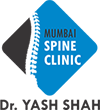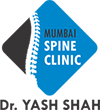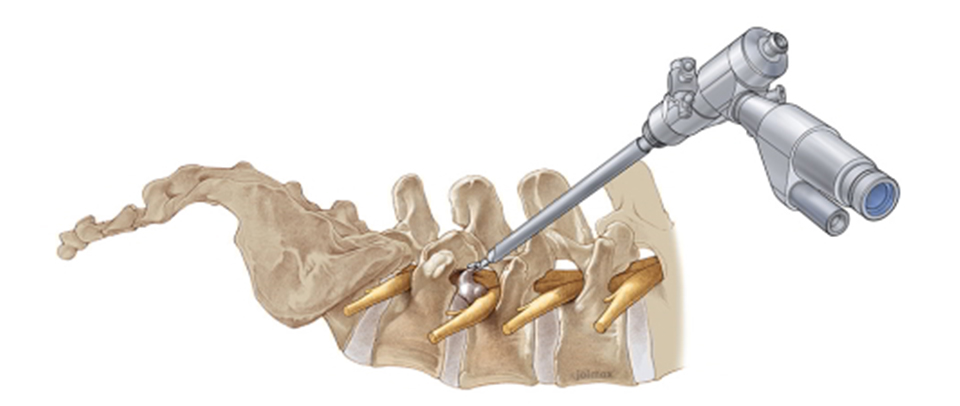This advanced procedure has gained popularity due to its effectiveness, reduced recovery time, and lower risk of complications.
Below, we delve into the various aspects of endoscopic spine surgery, exploring its benefits, procedures, and patient outcomes. One of best doctor for endoscopic spine surgery in Kandivali, Mumbai is Dr. Yash Shah. You will get Faster Recovery and Reduced Pain. Consult Now !
What is Endoscopic Spine Surgery?
Endoscopic spine surgery involves using a small tubular system and a tiny video camera called an endoscope to visualize the interior of the spinal column. Surgeons make small incisions, often less than an inch, through which they insert the endoscope and other surgical instruments. This technique allows surgeons to address spine problems with great precision.Benefits of Endoscopic Spine Surgery The advantages of endoscopic spine surgery over traditional open surgery are numerous:
- Minimally Invasive: Smaller incisions mean less tissue damage.
- Reduced Pain: Patients typically experience less postoperative pain.
- Faster Recovery: Shorter hospital stays and quicker return to daily activities.
- Lower Infection Risk: Smaller incisions reduce the likelihood of infections.
- Reduced Blood Loss: The minimally invasive nature of the surgery leads to less blood loss during the procedure.
Common Conditions Treated with Endoscopic Spine Surgery
Endoscopic spine surgery can effectively treat a variety of spinal conditions, including:Herniated Discs
Herniated discs occur when the soft inner gel of a spinal disc leaks out through a tear in the outer layer, causing pain and inflammation. Endoscopic discectomy can relieve pressure on the nerves and alleviate pain.Spinal Stenosis
Spinal stenosis is the narrowing of the spinal canal, which can compress the spinal cord and nerves. Endoscopic decompression procedures can widen the spinal canal and relieve symptoms.Degenerative Disc Disease
Degenerative disc disease involves the breakdown of spinal discs over time. Endoscopic techniques can remove damaged disc material and stabilize the spine.Spinal Tumors
In some cases, spinal tumors can be addressed using endoscopic methods to remove the tumor while minimizing damage to surrounding tissues.Endoscopic Spine Surgery Procedures
Several specific procedures fall under the umbrella of endoscopic spine surgery:Endoscopic Discectomy
Endoscopic discectomy is performed to remove herniated disc material that is compressing a nerve root or the spinal cord. The surgeon inserts an endoscope through a small incision and uses tiny instruments to remove the problematic disc material.Endoscopic Foraminotomy
In an endoscopic foraminotomy, the surgeon enlarges the foramina (the openings through which nerve roots exit the spine) to relieve nerve compression. This procedure is particularly useful for patients with spinal stenosis.Endoscopic Rhizotomy
Endoscopic rhizotomy involves severing or ablating nerve roots to reduce chronic pain. This procedure can be beneficial for patients with severe nerve pain that has not responded to other treatments.Endoscopic Spinal Fusion
Endoscopic spinal fusion is a technique where the surgeon stabilizes the spine by fusing two or more vertebrae together using small incisions and specialized instruments. This is often performed in cases of severe degenerative disc disease or spinal instability.The Endoscopic Spine Surgery Process
The process of endoscopic spine surgery involves several steps, ensuring a comprehensive approach to patient care:Preoperative Assessment
Before surgery, patients undergo a thorough preoperative assessment, including imaging studies like MRI or CT scans, to determine the exact nature and location of the spinal issue.Surgical Procedure
During the surgery, patients are typically under general anesthesia. The surgeon makes small incisions and inserts the endoscope to visualize the surgical area. Using real-time imaging, the surgeon performs the necessary procedure with precision.Postoperative Care
Postoperative care is crucial for a successful recovery. Patients are usually able to go home the same day or the day after surgery. Follow-up appointments ensure the surgical site is healing properly, and physical therapy may be recommended to aid in recovery.Patient Outcomes and Recovery
The recovery time for endoscopic spine surgery is generally much shorter than traditional open spine surgery. Most patients experience significant pain relief within a few weeks and can return to normal activities much sooner. Long-term outcomes are typically positive, with many patients reporting lasting relief from symptoms.Success Rates
Success rates for endoscopic spine surgery are high, with many studies showing comparable or superior outcomes to traditional open surgery. The minimally invasive nature of the procedure reduces the risk of complications and promotes quicker healing.Potential Risks
As with any surgical procedure, endoscopic spine surgery carries some risks, including infection, nerve damage, and incomplete relief of symptoms. However, these risks are relatively low compared to traditional surgery.Choosing the Right Surgeon
Selecting a skilled and experienced surgeon is critical for the success of endoscopic spine surgery. Patients should look for surgeons with specialized training in endoscopic techniques and a track record of successful outcomes. One such expert in Mumbai is Dr. Yash Shah, a National Board Certified Consultant Spine Surgeon known for his proficiency in endoscopic spine surgery.Questions to Ask Your Surgeon
- 1) What is your experience with endoscopic spine surgery?
- 2) What are the potential risks and benefits of the procedure for my condition?
- 3) How long is the typical recovery period?
- 4) What kind of postoperative care will I need?


